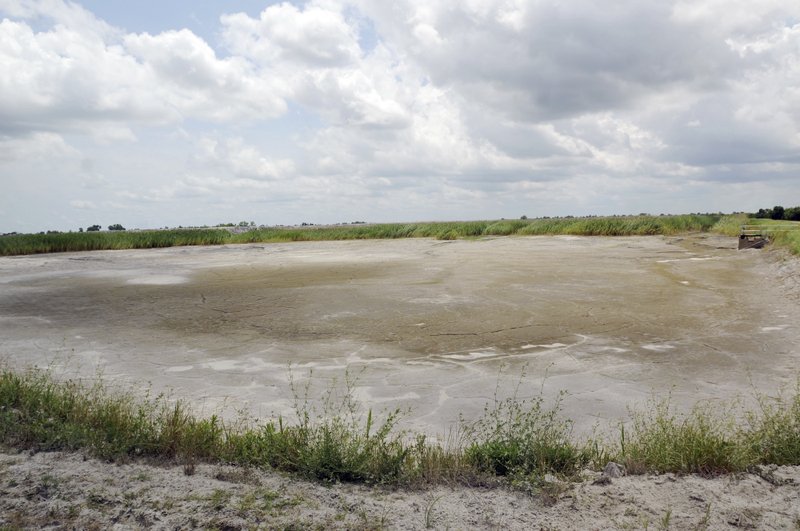North Carolina’s environmental agency exceeded its authority by ordering Duke Energy Corp. to dig up all of its coal ash and move it from unlined storage sites where toxic chemicals have seeped into water supplies, the country’s largest electric company said Friday.
Duke Energy said an administrative challenge to the state Department of Environmental Quality decision that the agency didn’t consider all the scientific evidence when it announced earlier this month that the company couldn’t use a lower-cost option. The storage basins at six coal-burning power plants affected by the agency’s order are considered low risk and neighbors are already being connected to drinking water supplies beyond their water wells, the company said.
Coal ash is the residue left after decades of burning coal to produce electricity. It contains toxic metals such as mercury, lead and arsenic.
The state agency jumped the gun by ordering everything excavated before considering steps to protect public health and the environment that would be cheaper than complete removal, Duke Energy’s lawyers said.
“DEQ’s order is not supported by the evidence (including scientific evidence) and imposes significant and unjustified expense on Duke Energy and its customers without measurable environmental benefits,” said the company’s brief to the state’s Office of Administrative Hearings, which hears challenges to agency decisions.
The company has said it wants to cover the storage pits at six of its 14 North Carolina coal-burning power plants with a waterproof cap, saying that would prevent rain from passing through and carrying chemicals through the unlined bottoms.
The Charlotte-based power giant has projected the cost of removing coal ash from eight of its 14 North Carolina coal-burning power plants at about $5.2 billion. The extra excavation the state environmental agency demanded at six additional plants could nearly double the cost to $10 billion, Duke Energy said.
Meanwhile, North Carolina Attorney General Josh Stein was expected to meet a Friday deadline to ask the state Supreme Court to overrule last year’s decision by utilities regulators allowing Duke Energy to collect $545 million in cleanup costs from customers rather than the company’s shareholders.
Stein said it’s unfair to force ratepayers to cover all the costs of cleaning up coal ash and not expect the company’s shareholders to pay anything.
“Duke Energy knew for many years that the way it handled coal ash was risky and could pollute groundwater, but it failed to act prudently when it should have. And now, Duke argues that the people of North Carolina should pay the full cost of cleaning up coal ash,” Stein said in a statement.
The utilities commission’s decision “also allows Duke Energy to raise customers’ rates so that Duke can earn a profit on the cost of cleaning up its coal ash mess,” Stein said. “That is also unfair and unacceptable.”
Duke Energy may be fighting the higher cost of excavating its remaining coal ash pits because of the risk that it won’t be allowed at some point to charge ratepayers, said Dave Rogers, who heads the Sierra Club’s North Carolina effort to stop burning coal in favor of cleaner power. That’s despite the potential for the company to pocket hundreds of millions of dollars in profit for the extra excavation work.
Asked whether the company feared being unable to recoup all coal-ash costs, Duke Energy spokesman Bill Norton responded that the environmental agency’s order is not supported by science.
“The Utilities Commission has made it clear these are customer costs, and we have a responsibility to manage those costs as wisely as possible. We’d rather deploy funds into renewables and a stronger grid,” Norton wrote in an email.


